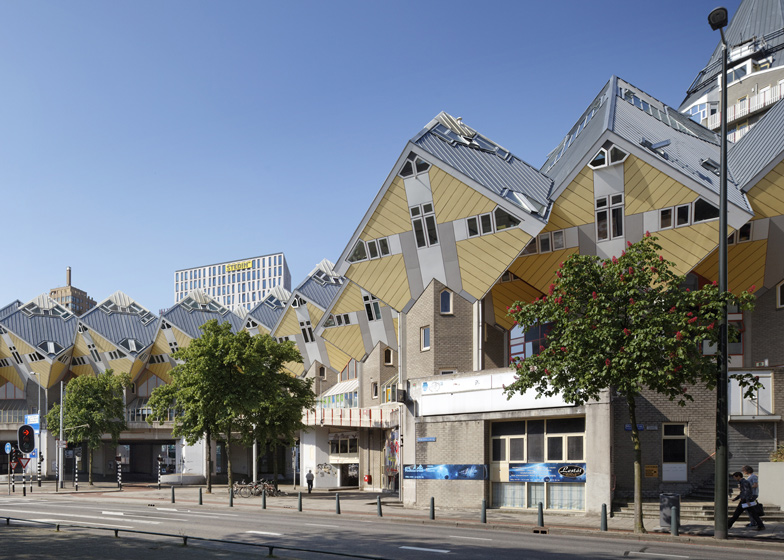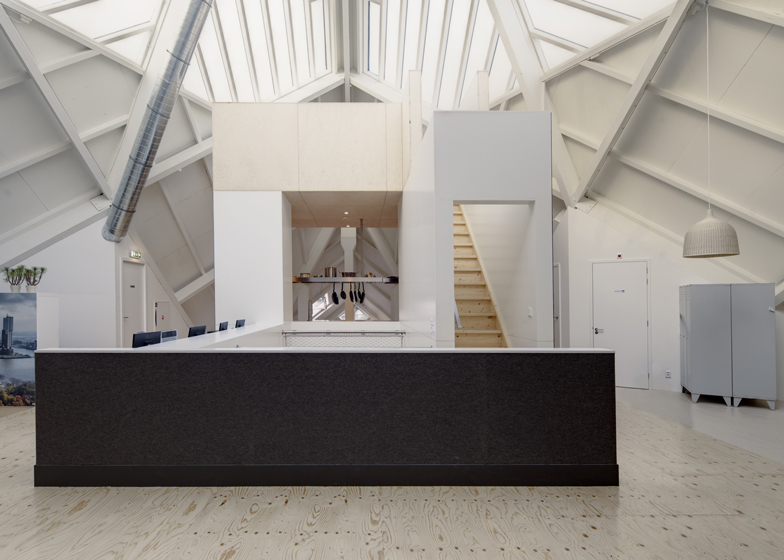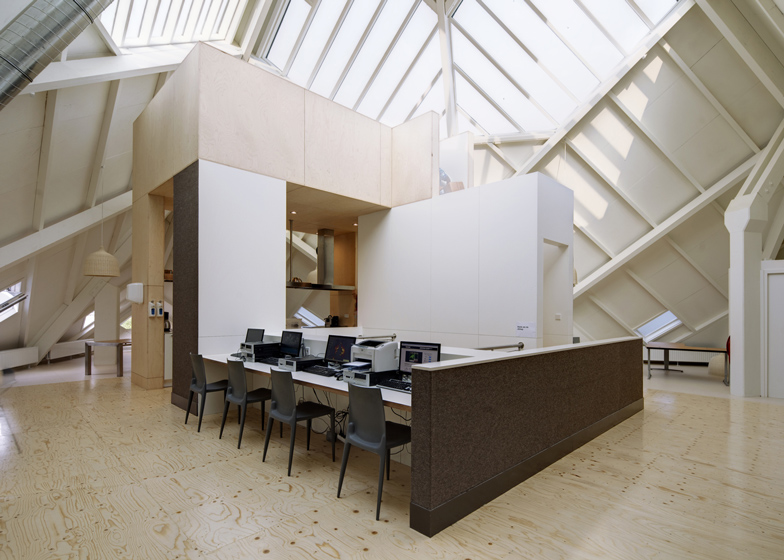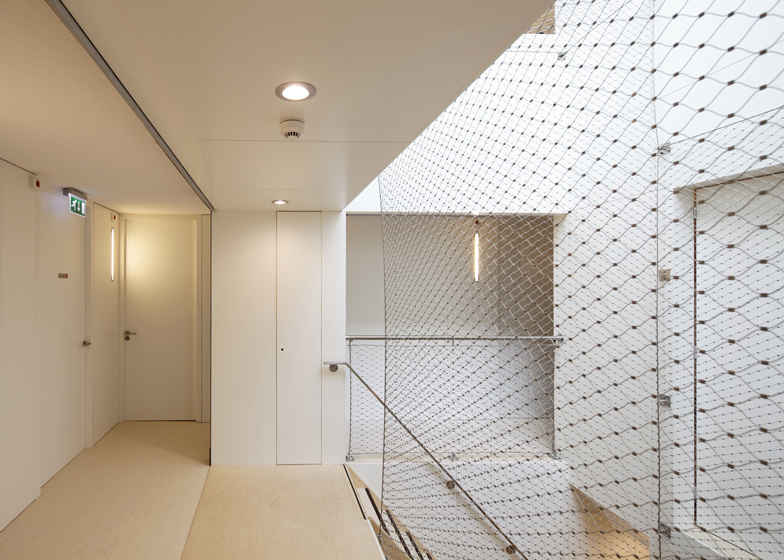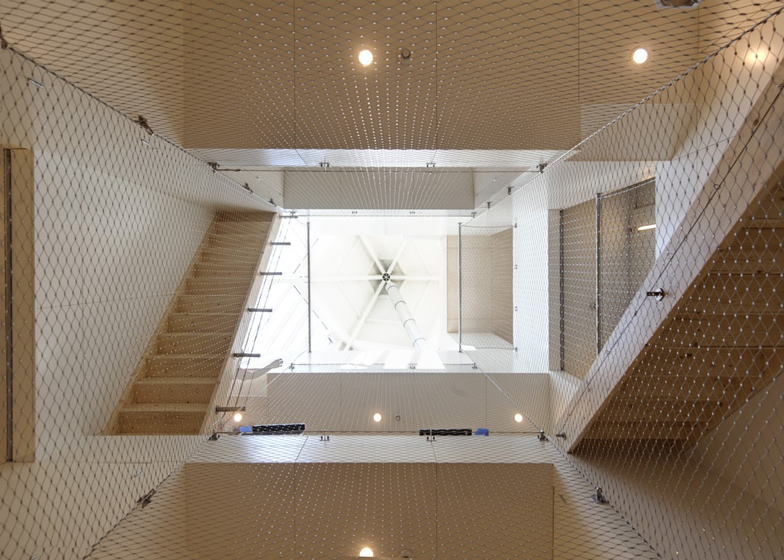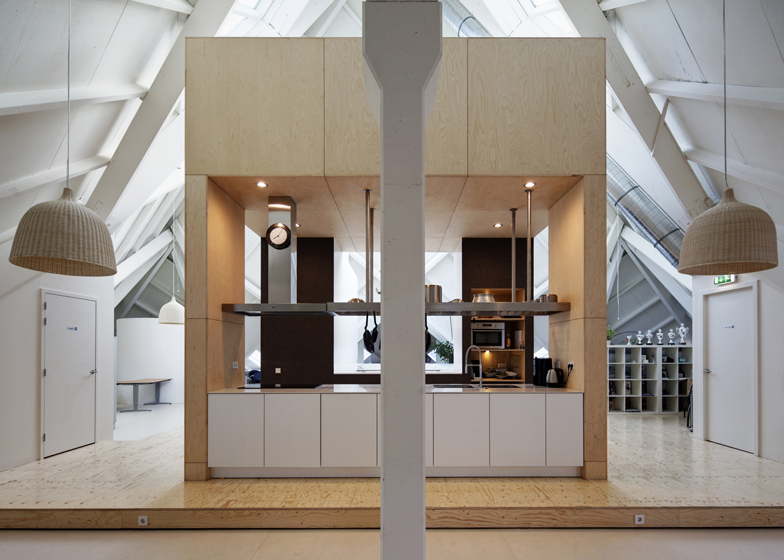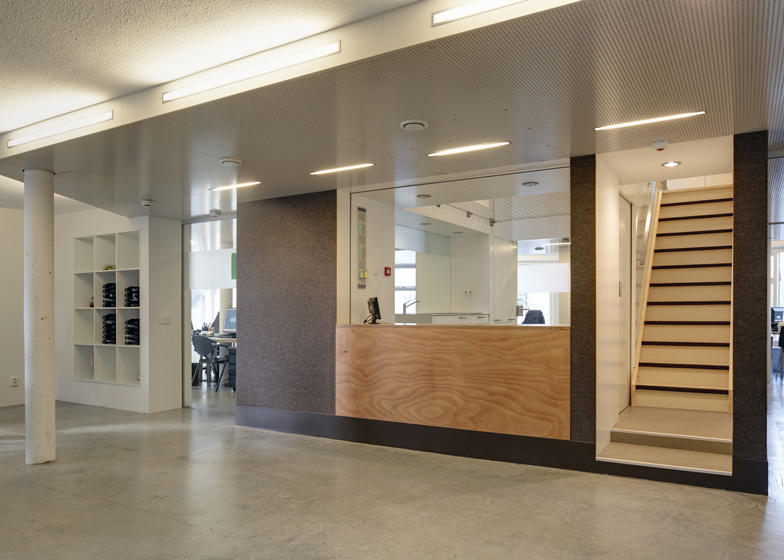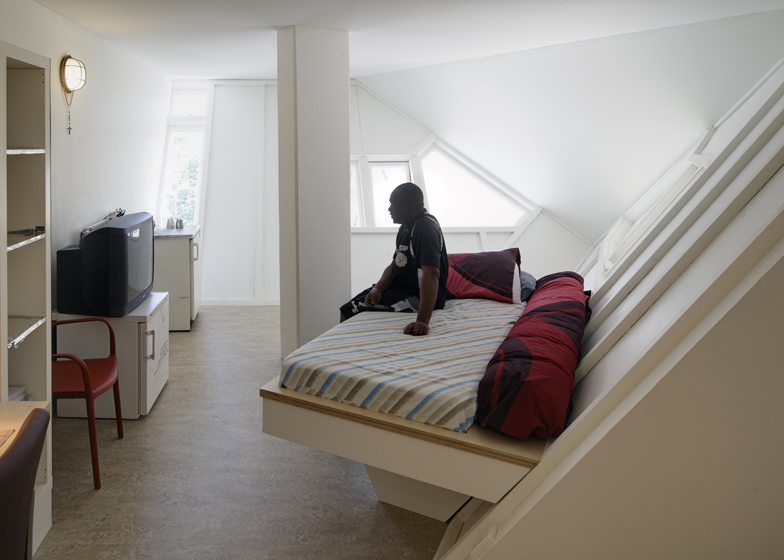Dutch studio Personal Architecture has renovated one of Piet Bloms' iconic Cube Houses in Rotterdam to create a residence for delinquents in their final stages of detention (+ slideshow).
The Supercube is one of 40 houses in the 1980s housing complex, which features cube-shaped volumes perched atop large hexagonal columns. While some of the buildings contain apartments or hotel rooms, this four-storey block has been mostly vacant since its construction.
Identifying the main problems with the interior as being "the discontinuity between floors, the tedious vertical progress and the dark, inconvenient middle floor," Personal Architecture decided to insert an atrium to bring natural light through the house and to rationalise the circulation.
"The building was dark, it warmed up quickly and there was no relation whatsoever between the floors," explained architects Sander van Schaik and Maarten Polkamp.
A new staircase was added around the sides of the atrium to create a coherent route between floors, while small rooms such as the kitchen, bathrooms, and reception were tucked into its sides.
"The void raises the transparency and coherence of the building and adds a great deal of sunlight from the tip to the underlying levels," said the architects.
This full-height space also helps to regulate temperatures throughout the four-storey structure by functioning as a chimney that draws cool air up to the warmer upper levels.
Bedrooms for 21 individuals surround the atrium on the two middle floors, each with their own en suite.
An open-plan upper floor offers a space for different activities. The kitchen is positioned next to a communal dining area, while computer stations wrap one edge of the atrium and an area beyond functions as a lounge.
Personal Architecture also recently renovated a townhouse in The Hague, adding mezzanine floors, a glass elevation, a triple-height kitchen and a spiral staircase.
See more houses in the Netherlands »
See more renovations »
Photography is by René de Wit.
Here's more information from Personal Architecture:
Living Together in a Giant Cube
Renovation of the 'Supercube' into a twenty-room residence for former convicts by Personal Architecture
After thirty years of vacancy the Supercube, being part of Piet Bloms world famous cube complex in Rotterdam, gets its first real destination. Under the guidance of the Exodus foundation the Cube is inhabited by 20 delinquents in the final stage of their detention.
Since its completion in 1982 the Supercube has been mostly vacant, some parts of the building weren't even fully completed. According to the architects, Sander van Schaik and Maarten Polkamp, this is explicable: 'the building was dark, it warmed up quickly and there was no relation whatsoever between the floors'. Not the ideal circumstances for the new function either, where transparency, social control and facilitating encounters between its inhabitants are vital conditions for the success of re-integration.
The discontinuity between floors, the tedious vertical progress and the dark, inconvenient middle floor are considered the three problematic issues in the original building. To carry out the proposed program, a twenty-room residence complex, these issues are tackled by means of a single intervention. To this end, a rectangular shaft is inserted into the heart of the building, creating a void of 3x3 meters throughout the entire height. The void raises the transparency and coherence of the building and adds a great deal of sunlight from the tip to the underlying levels. In addition, the element plays a part in thermally regulating the building; the 'chimney effect' created by the new shaft, means cool air from the underlying floors rises up and cools the warmer tip of the cube. Several functions such as reception, pantry, laundry / bathrooms, storage and kitchen are located inside the shaft wall. Furthermore, this 'service wall' supports the stairs that wind up through the floors.
With the realisation of the nearby Stayokay Hostel in another part of the cube complex, Personal Architecture already upgraded a part of the iconic and world famous cube complex. Placing this new function within a tight community like the cube complex was a daring enterprise but it is expected that the Exodus foundation and its inhabitants will have a positive influence on the atmosphere of the total complex and that the social control and supervision will increase. Cooperations between the Exodus foundation, the inhabitants of the regular dwellings, volunteers and the companies in the surroundings are gradually taking shape.

